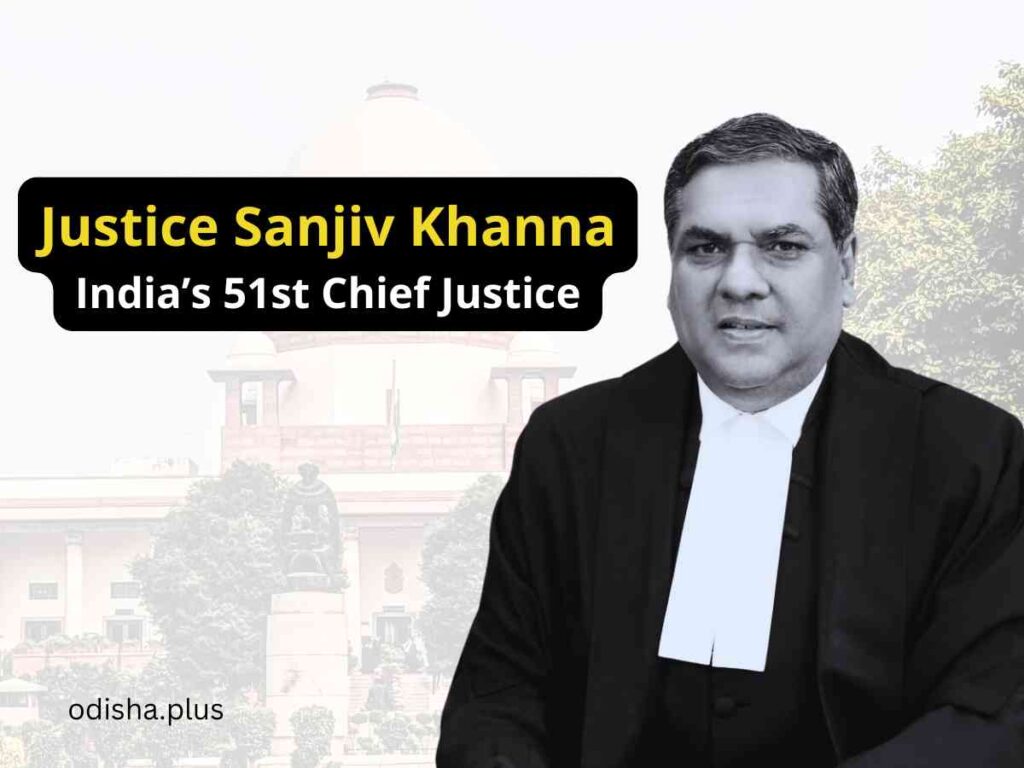Justice Khanna has delivered landmark judgments throughout his career
Pushpamitra Mohanty

On November 11, 2024, Justice Sanjiv Khanna was sworn in as the 51st Chief Justice of India (CJI), succeeding Justice DY Chandrachud. With brief but impactful six-month tenure ahead, until his retirement on May 13, 2025, Justice Khanna brings a profound legacy of judicial integrity and extensive experience across constitutional, criminal and civil law. His elevation comes at a time when the Supreme Court is set to address a range of pivotal issues, from personal law to antitrust cases and economic regulations, all of which are likely to shape India’s legal landscape.
Justice Khanna has delivered landmark judgments throughout his career, including his contributions to cases on Article 370, electoral transparency, and the application of the Right to Information (RTI) Act to the judiciary. Known for his balanced approach to state authority and individual freedoms, his judgments reflect his commitment to personal liberty, gender justice, and minority rights.
Notable Judgments by Justice Khanna
Abrogation of Article 370
Justice Khanna was a key member of the bench that upheld the abrogation of Article 370, a historic decision redefining the relationship between Jammu and Kashmir and the Indian Union. His stance underscored his dedication to constitutional principles in the face of complex regional dynamics.
Electoral Bonds and Transparency
Justice Khanna also deliberated on the controversial electoral bonds scheme, which raised questions about transparency in political funding. His involvement in this case highlighted his concerns about the integrity of political finance systems.
RTI Applicability to the Judiciary
Justice Khanna played a crucial role in establishing that the office of the Chief Justice of India is subject to the Right to Information Act, emphasizing transparency at the highest judicial levels.
Safeguarding Personal Liberty
In numerous cases related to bail and personal freedom, Justice Khanna upheld the importance of individual rights, balancing the powers of the state with a nuanced understanding of personal liberty.
Upcoming Cases Under CJI Khanna
Marital Rape Exception
The Supreme Court will soon address the legality of the marital rape exception, with CJI Khanna expected to preside over the hearing. This case will determine whether non-consensual sexual relations within marriage should be criminalized, a decision that could set a transformative precedent for women’s rights.
Aligarh Muslim University’s Minority Status
CJI Khanna’s bench will examine the minority status of Aligarh Muslim University, a re-evaluation that overturns the 1967 Azeez Basha ruling. This case holds significant implications for minority educational institutions’ rights and autonomy in India.
Google Antitrust Appeal
The Supreme Court will hear Google’s challenge against the Competition Commission of India’s (CCI) ₹1,338 crore fine for antitrust violations, a case with far-reaching consequences for regulatory measures in India’s tech industry.
E-Gaming Retrospective Taxation
The court is set to hear petitions from e-gaming companies challenging GST notices totaling over ₹1.12 lakh crore. The verdict could reshape the taxation landscape for digital platforms and online businesses.
Bihar Caste Census
The constitutional validity of the Bihar caste census will come under scrutiny, raising questions about affirmative action policies and the relevance of caste-based data in public policy.
Election Commission Appointments Act
The Supreme Court will assess the constitutional soundness of the Election Commission Appointments Act, addressing concerns about potential encroachments on the Commission’s independence.
PMLA Provisions on Arrests
The Supreme Court, under CJI Khanna, will also examine the scope of the Prevention of Money Laundering Act, specifically concerning the grounds and necessity for arrests under the law’s stringent measures.
Security Protocols for Healthcare Workers
Following the brutal assault and murder of a trainee doctor in Kolkata, the Supreme Court’s task force on healthcare worker security will present its recommendations. Justice Khanna is expected to lead the review of these protocols.
Justice Khanna’s lineage traces back to Justice HR Khanna, his uncle, who famously dissented in the ADM Jabalpur case during the Emergency in 1975. This historic dissent upheld the right to life and liberty, even in the face of suspended constitutional rights, embodying the judiciary’s independence and courage. Justice Sanjiv Khanna’s career, shaped by this legacy, is marked by a steadfast commitment to judicial integrity, democratic values, and constitutional fidelity.
As CJI, Justice Khanna’s short tenure promises to leave a significant mark on India’s judiciary, navigating complex constitutional questions while fortifying the judiciary’s role as a guardian of fundamental rights and democratic principles.
(The author is a senior journalist. Views expressed are personal.)
#india #chief-justice-of-india #sanjiv-khanna #cji-sanjiv-khanna #supreme-court-of-india



























